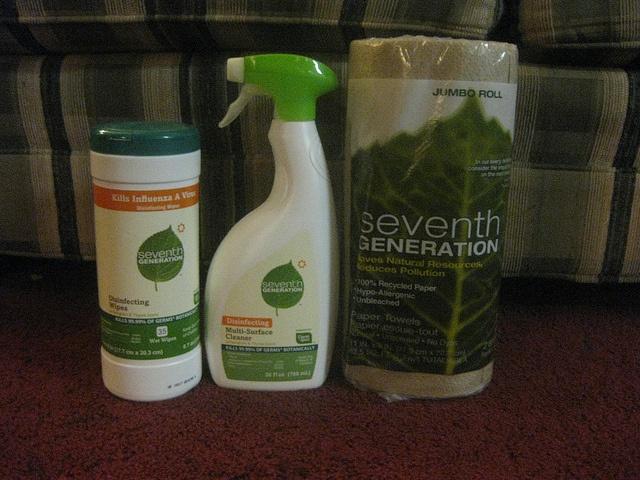
Seventh Generation has been an environmentally conscious company from the get-go. Founded in 1988, the company is named after an ancient Iroquois document that declares that “in our every deliberation, we must consider the impact of our decisions on the next seven generations.”
Now, the company is taking its environmental consciousness to a new level. Recently, Seventh Generation released its Corporate Consciousness 2015 Report which revealed the company is establishing an internal tax on its carbon emissions.
"The carbon tax anchors our greenhouse has reduction strategy in the heart of our business, activating our entire organization in support of our 2020 goal to obtain our energy from non-fossil fuel sources," said CEO John Replogle in a statement. "Decreasing our carbon footprint is mission-critical for Seventh Generation in caring for the next seven generations."Many companies put an internal price on carbon. A 2015 CDP report on carbon pricing in the corporate world found that the number of companies doing so tripled since 2014. A total of 435 companies participating in CDP’s survey reported using an internal price on carbon, up from 150 in 2014.
The companies include what CDP called “highly trusted brands,” such as Colgate-Palmolive and Campbell Soup. The list also includes global industrials like General Motors and financial giants like TD Bank. The “dramatic increase” in companies using an internal price on carbon “demonstrates the ongoing mainstreaming of carbon pricing as a high priority for business and an essential component of the corporate strategy toolkit,” according to CDP.
Seventh Generation's progress toward its 2020 goals
Seventh Generation has made good progress toward its 2020 goals, as the report details. One of those goals is to replace all virgin plastic used in product packaging with recycled or bio-based plastic and to look for plant-based alternatives to petroleum-based ingredients. The company has met 80 percent of that goal, to date, up four percent from 2013.The company has another packaging goal and that is for all to be either biodegradable or recyclable by 2020. It has achieved a 69 percent level, an increase of six percent since 2013. The ultimate goal is to generate zero waste for all of its products and packaging, and Seventh Generation states that is progressing towards that goal.
Seventh Generation’s research and development (R&D) teams are “focusing intensively” on its diaper products. Its Touch of Cloth diapers replaces a synthetic outer layer with a soft layer of 70 percent unbleached cotton grown in the U.S. and 30 percent plant-based rayon, both biodegradable materials. Through the use of cotton and plant-based rayon, 80,000 pounds of petrochemicals have been avoided in one year.
The use of recycled materials has saved 154,000 trees and 400,000 million cubic feet of landfill space. The use of plant-based and non-volatile organic ingredients (VOCs) saved 49,000 barrels of oil and 206,000 pounds of VOCs.
In one area Seventh Generation hasn’t made progress in the last few years. It has a goal to source only agricultural materials that are certified sustainable by a credible third party. Currently, 78 percent of wood pulp sourced is certified by the Forest Stewardship Council (FSC), which is down three percent from 2013, which the company attributes to changes in product mix FSC certification that ensures wood is harvested from responsibly managed forests.
Expanding through Seventh Generation Ventures
Two years ago, Seventh Generation started what Replogle describes in a foreword to the report as a “new means of extending our business model with the founding of our investment arm.” That investment arm is called Seventh Generation Ventures, and through it the company has purchased Gamilla, maker of gourmet coffee and tea products, and Bobble, a reusable bottled water company. Through the venture, Seventh Generation can “begin parenting different product lines that meet the growing needs of consumers who desire to live a healthy and environmentally-friendly lifestyle,” according to Replogle.One advantage of Seventh Generation Ventures is that it allows the company to expand instead of focusing on having a larger company buy them out. And it allows them to increase their array of eco-friendly products. Or as Ariel Schwartz, senior editor for Fast Co.Exist, put it in 2014, through Ventures, Seventh Generation is “buying a mini-empire of sustainable companies."
Image credit: Flickr/Elizabeth

Gina-Marie is a freelance writer and journalist armed with a degree in journalism, and a passion for social justice, including the environment and sustainability. She writes for various websites, and has made the 75+ Environmentalists to Follow list by Mashable.com.














